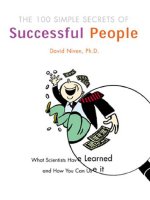First paragraphs
Bạn đang xem bản rút gọn của tài liệu. Xem và tải ngay bản đầy đủ của tài liệu tại đây (37.51 KB, 2 trang )
FIRST PARAGRAPHS
Clifford Thurlow
I have put off writing this piece for some weeks because I couldn't
think of a first paragraph. In this I detect a common dilemma.
Reading through a web collection of short fiction recently, I realised
that several were outstanding – except for the first paragraph, the one
sculpted to such flawless perfection they said nothing at all. Think of a
Barbie Doll and you get the picture.
The first paragraph is a sickness. It is where writers feel the urge to
show brilliance, this siren call reminding me of Samuel Johnson's
haunting counsel: Read through your work. When you come to a part
that's particularly pleasing, strike it out.
I can't say that I fully subscribe to this viewpoint, but it's scribbled
on a Post-it beside my desk nonetheless.
Last paragraphs can be just as troublesome. It's the one where we
feel tempted to explain everything, and is often best left out.
Writers can't live in a vacuum. We write to be read. Stories can take
any obtuse tangent, but the first concern must be to communicate and,
by extension, to entertain. Be obscure, but clearly. There are demands
on our time from movies, soccer, surfing the web and the oceans, textmessaging, the pub.
In a novel, there is time and space for a range of ideas and mood
swings, an understanding between the author and his readers that a
new world is being revealed. Short stories and articles must grab us
immediately and hold our attention. It is strange but true that some
short story writers can't write novels and some novelists fail utterly
with their short stories.
A lot of mainstream fiction is formulaic and predictable. We are
some say in a literary wilderness. It is the rebels of web and selfpublishing who often find the courage to experiment, to carry the fire
through the darkness. But writers are failing in their mission when
substance is outweighed by cleverness. Stream of consciousness
passages may floor us by the power of their beauty. Like Belgian
chocolate, though, a little goes a long way.
Surrealism and fantasy are in vogue, but the rules for good fiction
remain fixed and only when you know the rules can you rearrange
them to suit yourself. When a writer reaches that level of expertise, he
can then take Jean Cocteau's advice: Listen to first criticisms of your
work. Note just what it is that critics don't like – then cultivate it. That's
the part of your work that's individual and worth keeping.
Writers must strive for individuality but do so by following in the
footsteps of all the writers who have gone before us. Painters follow
another path; composers their own, juggling the same meagre set of
crotchets and quavers until they dazzle with something sparkling and
new. This is not plagiarism, unless for writers reading is plagiarism, and
no writer gets to be a good writer without following these three
essential tips: read, read, read.
It is often said that analysis deadens our appreciation. Whilst this
may be true, it does not apply to the analysis of your own work. Stories
should be read many times before you can honestly say you're
satisfied. It's a good idea to read aloud. If you pause for anything other
than breath, pity the poor reader and crack open another can of
Fosters. It's going to be a long night. Keep polishing. Words for John
Updike are little balls of wax to be burnished into a shiny corridor, a
slippery bright path from conflict to resolution. Remember, you spend
as much time shaping a bad story as a good one.
One of the awful things about writing (apart from the isolation,
rejection, poverty and not knowing what to say when strangers ask
what you do) is that no matter how good we think a piece is, there's a
part of us which believes it could be better.
That's why we keep going. No one knows why we do it and, when
we've done it, more often than not, nobody wants it. But writers have
to write and we must always seek to make what we are writing as good
as it can possibly be.
Reading through, I see I don't need the first paragraph. Or the last.
© September 2007 Clifford Thurlow
700 words









